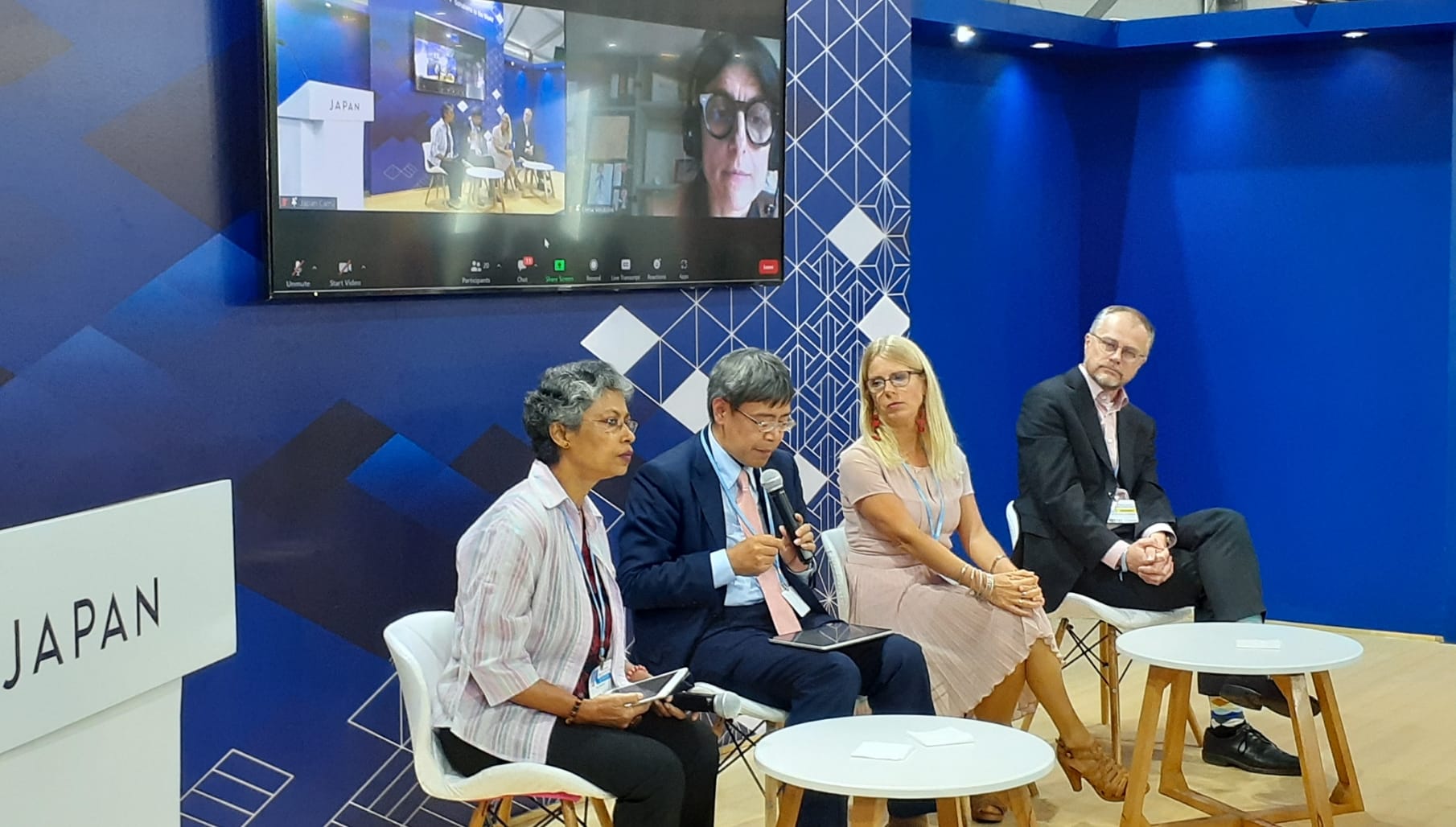2022.11.17 THU
- 10:30 - 12:00
- High well-being with low energy demand towards the modern net-zero society
- Organizer
- Research Institute of Innovative Technology for the Earth (RITE)
- Seminar abstract
- Ensuring well-being and access to essential and social services is why society requires materials and energy. This seminar presents the roles of technological, social and infrastructural innovations that can deeply reduce demand for energy and stimulate a just transition to net-zero societies, through interdisciplinary research on low energy demand while satisfying high services.
【Agenda of the Event】
Opening remarks(5min)- ・Joyashree Roy:Asian Institute of Technology(AIT)
- ・Wataru Takahama:Ministry of Economy, Trade and Industry(METI)Director,Global Environmental Affairs Office Industrial Science and Technology Policy and Environment Bureau
- ・Keigo Akimoto:Group Leader, Chief Researcher, Systems Analysis Group, Research Institute of Innovative Technology for the Earth(RITE)
- ・Bas van Ruijven:International Institute for Applied Systems Analysis(IIASA)
- ・Elena Verdolini:European Institute on Economics and the Environment (EIEE)
- ・Diana Urge-Vorsatz:Central European University (CEU), IPCC WG3 Co-Vice chair
- ・Joyashree Roy(Moderator):Asian Institute of Technology(AIT)
- Speakers
- 【Local Speakers】
- Joyashree Roy(Moderator)(Asian Institute of Technology(AIT)) Professor
- Takahama Wataru(Ministry of Economy, Trade and Industry(METI)) Director,Global Environmental Affairs Office Industrial Science and Technology Policy and Environment Bureau
- Keigo Akimoto(Research Institute of Innovative Technology for the Earth(RITE)) Group Leader,Chief Researcher,Systems Analysis Group
- Bas van Ruijven(International Institute for Applied Systems Analysis (IIASA)) Research Group Leader and Senior Research Scholar
- Diana Urge-Vorsatz(Central European University (CEU)) Professor, IPCC WGIII Co-Vice chair
【Online Speakers】- Elena Verdolini(European Institute on Economics and the Environment (EIEE)) Senior Scientist
- Session Summary
-
Ensuring well-being and access to essential and social services is why society requires materials and energy. This seminar presented the roles of technological, social and infrastructural innovations that can deeply reduce demand for energy and stimulate a just transition to net-zero societies, through interdisciplinary research on low energy demand while satisfying high services.The main remarks of the speakers are as follows.
- ・Let us remember by heart that Demand side solution does not mean Shifting responsibility of mitigation to people but it is about empowering people by providing access to right infrastructure, access to technology and incentives which can take away a large burden of uncertainty and need for supply side decarbonisation without compromising wellbeing and planetary boundary. Maximum of the new cities will be built in the developing world in this one decade so there is huge opportunity to build them right for inclusive growth by avoiding locking them in an unsustainable pathway.
- ・Digitalization and the related innovations could induce rapid changes in our society, reduce several resources and the embedded energy consumptions through circular and sharing economy, and achieve cheaper cost for deep emissions reduction. Better understandings on the potential changes and great contributions to emissions reduction as well as achievements of multiple SDGs through comprehensive analyses will induce the movements in all people including consumers, industrial people, and policymakers.
- ・There is a broad spectrum of opportunities that can make cities more livable, increase social inclusion and well-being, strengthen local communities and local economic activity and productivity, as well as physical and mental health, while keeping within planetary boundaries and net zero emission efforts.
- ・In developed country cities, this implies that most technological, social, business (model) innovations are needed for rethinking and restructuring existing urban form, repurposing, retrofitting, repairing and reusing existing infrastructure, vehicle stocks and equipment rather having to build/produce new ones (where possible)

- Event Materials
- Message and Results
This year’s seminar attracted more attendees than usual. In addition, by conducting online distribution via Zoom Meeting, we were able to disseminate RITE’s research results and the opinions of each speaker to the world in real time, which was a great achievement.
Regarding online distribution, we recognize that it is necessary to consider in order to improve security.RITE:Homepage High well-being with low energy demand towards the modern net-zero society [Nov. 17]
https://www.rite.or.jp/system/en/events/2022/12/cop27_1.html
IIASA:Homepage
https://iiasa.ac.at/events/nov-2022/rite-iiasa-side-event-on-edits-at-unfccc-cop27
Other timetable
2022.11.17 THU
- 13:00 - 14:30
-
Quad Workshop on Subnational Climate Action under Q-CHAMP
Organizer: National government of Japan, Australia, India and the US
Co-organizer: ICLEI
IGES
- 14:50 - 15:50
-
Leading Actions towards Zero Carbon Cities
Organizer: Ministry of the Environment Government of Japan
OECD
Co-organizer: IGES
- 16:10 - 17:10
-
Climate innovation and technologies for building decarbonized society in Africa – facilitative approaches and cooperative mechanisms for maximizing public and private sector partnerships
Organizer: United Nations Industrial Development Organization
Co-organizer: The African Development Bank
- 17:30 - 18:45
-
Circular Priciples for Carbon Neutrality -Accelerating circular economy actions by the business sector and key drivers-
Organizer: Ministry of the Environment, Government of Japan
Co-organizer: World Economic Forum
